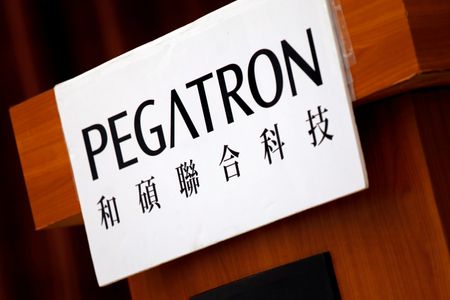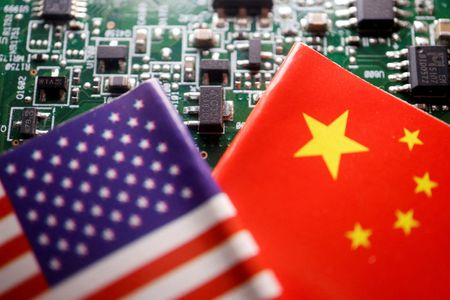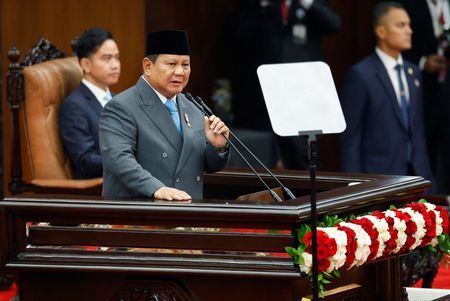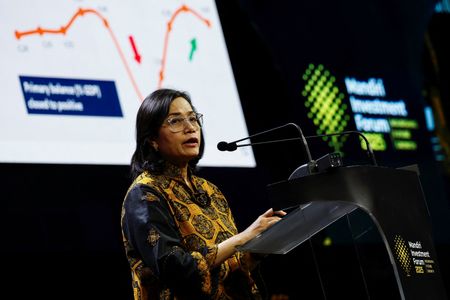By Wen-Yee Lee
TAIPEI (Reuters) -Taiwan’s Pegatron, an important supplier to Apple and Dell, said on Monday that President Donald Trump’s tariffs were confusing U.S. customers and risked leading to shortages of consumer electronics in the United States.
Washington’s on-again, off-again levies have created uncertainty for U.S. retailers and disrupted decisions on shipments, the electronics manufacturer’s chairman T.H. Tung told Reuters on the sidelines of an awards event.
“Within two months, shelves in the United States … might resemble those in third-world countries, where people visit department stores and markets only to find empty shelves, all because everyone is waiting and seeing,” Tung said.
This month, Trump abruptly paused some tariffs targeting trading partners including Vietnam, Indonesia and India, where Pegatron has manufacturing bases. A 10% levy on nearly all goods imported into the U.S. remains, however.
Though meant to provide some relief while trade talks take place, Tung said U.S. importers will not necessarily take advantage of the pause by ramping up shipments if they believe the 10% tariff might be repealed.
Trump’s actions had disrupted the seamless logistics at the centre of the modern global supply chain, Tung said, but added that Pegatron would stick to its plans.
“Just because Trump raises tariffs doesn’t mean the rest of the world will do the same. Taiwanese contract manufacturers are sticking to their overseas plans,” he said.
“We won’t immediately adjust our long-term plans just because of two or three months of tariff changes. Manufacturing bases require long-term planning,” he added
Pegatron has been diversifying its manufacturing locations away from China since Trump’s first term, expanding to countries in Southeast Asia as well as Mexico.
Tung said the manufacturing locations were not decided by Taiwanese contract manufacturers themselves, however, but had to be negotiated with customers.
(Reporting by Wen-Yee Lee; Editing by Joe Bavier)











